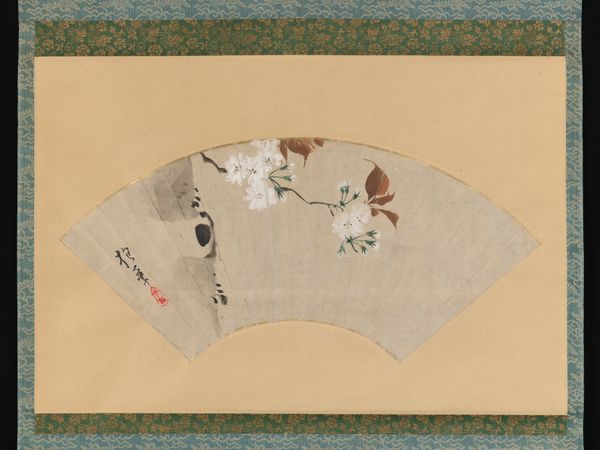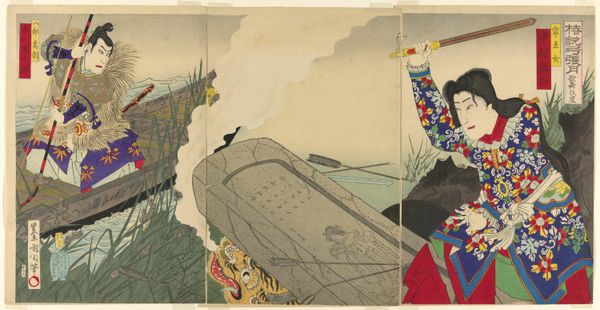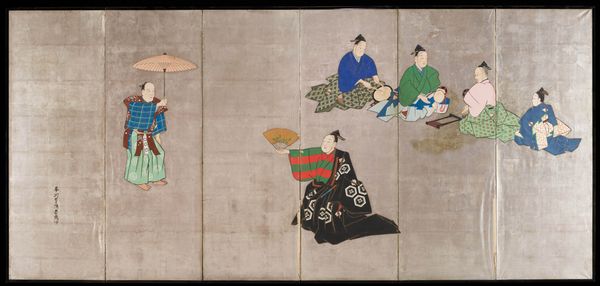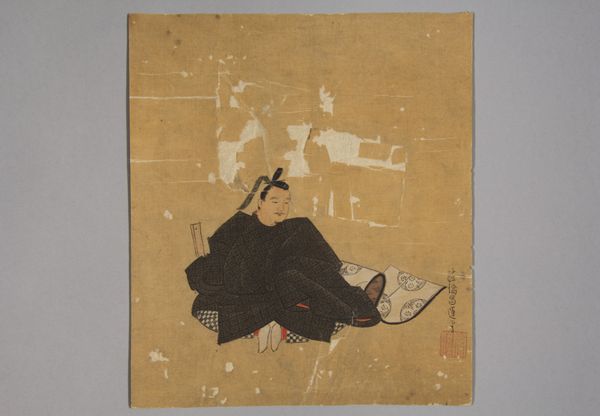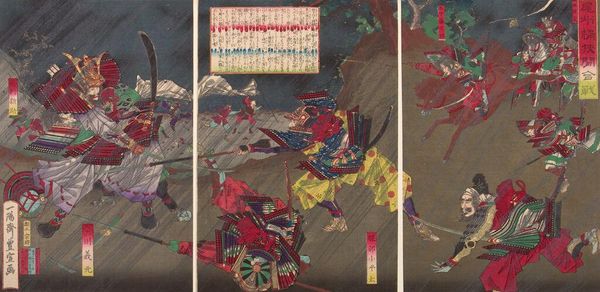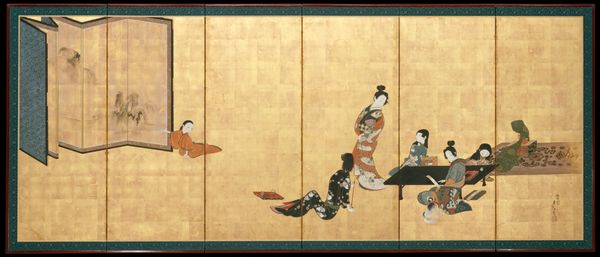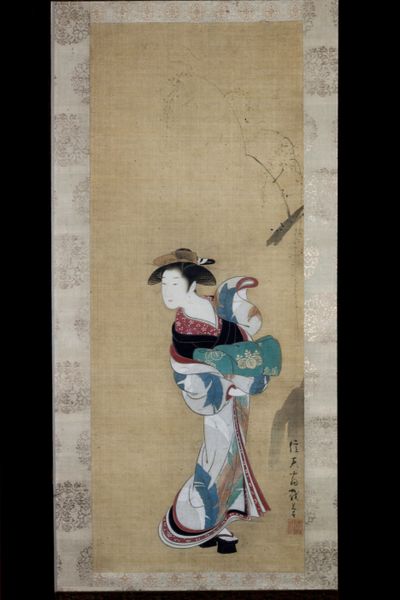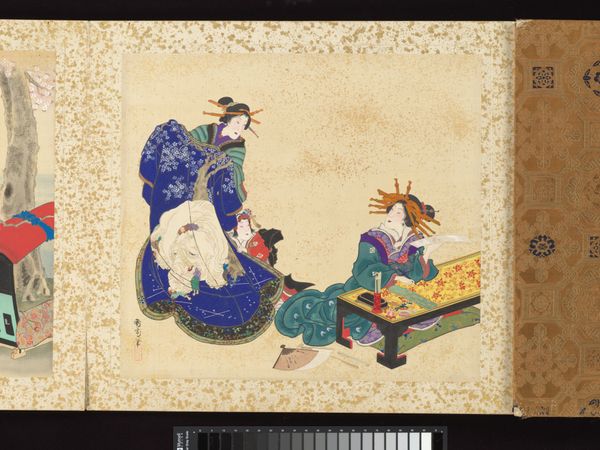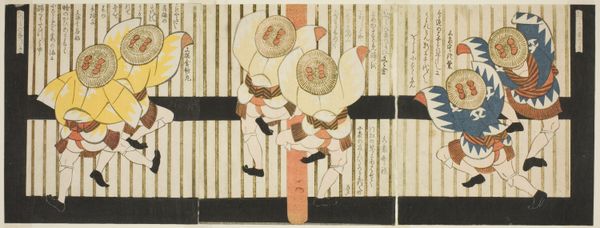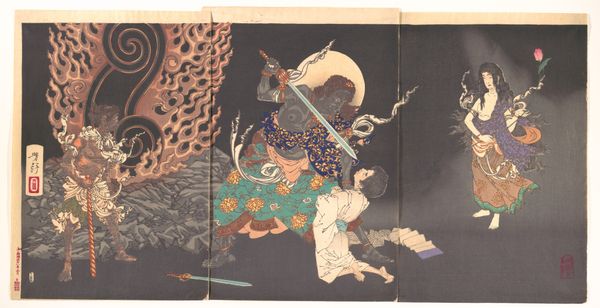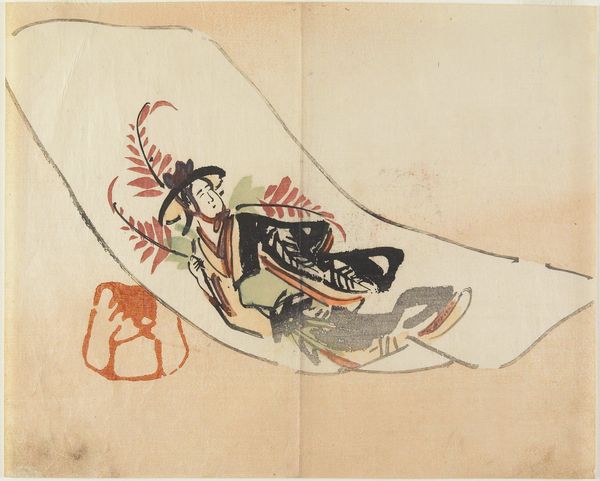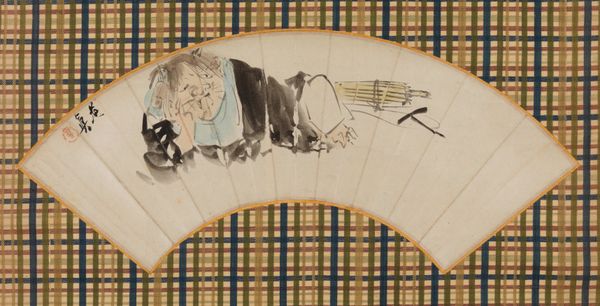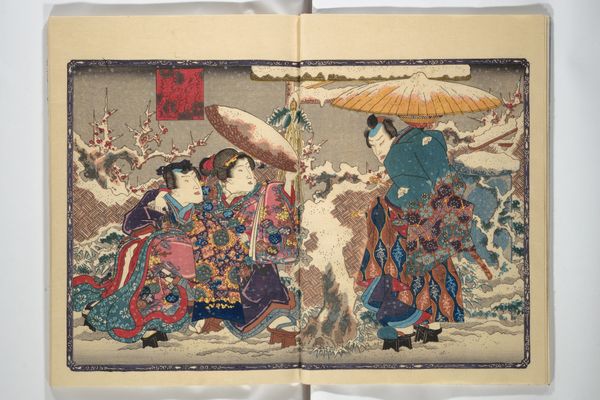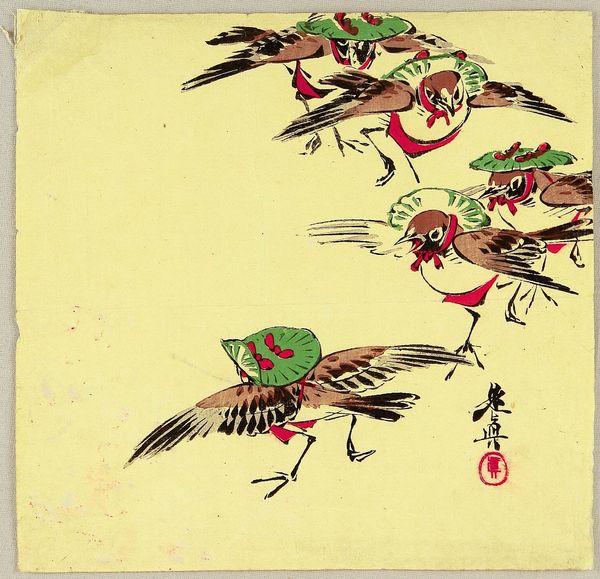![Scenes from Kyōgen Theater [right of a pair] by Fukushima Chikaharu](/_next/image?url=https%3A%2F%2Fd2w8kbdekdi1gv.cloudfront.net%2FeyJidWNrZXQiOiAiYXJ0ZXJhLWltYWdlcy1idWNrZXQiLCAia2V5IjogImFydHdvcmtzL2E0ODdiMGRmLThhZjctNDRlNi05MzZlLTZmMTY4ZTk1YzRkNC9hNDg3YjBkZi04YWY3LTQ0ZTYtOTM2ZS02ZjE2OGU5NWM0ZDRfZnVsbC5qcGciLCAiZWRpdHMiOiB7InJlc2l6ZSI6IHsid2lkdGgiOiAxOTIwLCAiaGVpZ2h0IjogMTkyMCwgImZpdCI6ICJpbnNpZGUifX19&w=3840&q=75)
Scenes from Kyōgen Theater [right of a pair] c. mid 19th century
0:00
0:00
tempera, painting
#
tempera
#
painting
#
asian-art
#
ukiyo-e
#
japan
#
folk art
#
figuration
#
genre-painting
Dimensions: 63 1/8 × 136 1/2 in. (160.34 × 346.71 cm) (image)64 1/2 × 138 × 3/4 in. (163.83 × 350.52 × 1.91 cm) (outer frame)
Copyright: Public Domain
Fukushima Chikaharu painted these scenes from Kyōgen Theater on a six-panel screen, sometime in the 19th century. Kyōgen plays were traditionally performed as interludes during the more serious Noh theater, offering comic relief. This screen encapsulates some of that playful spirit, showing us stock characters in mid-performance. We see their exaggerated costumes and gestures. Theater in the Edo period, from 1603 to 1868, was heavily regulated by the shogunate in an effort to maintain rigid social hierarchies. Kyōgen's humor often poked fun at those in power, providing a safely sanctioned form of social critique. The choice of silver leaf as a background might refer to the wealth of the patrons who enjoyed these plays. Understanding the social role of Kyōgen requires us to look at play texts, government records, and theater programs. Each of these resources helps us understand the complex relationship between art, entertainment, and social commentary.
Comments
minneapolisinstituteofart about 2 years ago
⋮
In this pair of screens, Kyōgen actors perform two comic plays. The left screen depicts a scene from Fuku no kami (“God of Good Luck”) during which the god, shown in red at the left, descends to earth for a night of frolicking at New Year's. The right screen portrays a scene from the skit Suehirogari (“The Fan of Felicity”), in which the young country bumpkin and servant Tarō-kaja, shown at the left, holds the umbrella he has been tricked into buying instead of the fan his master requested. The four men in a row provide the musical accompaniment of drums.
Join the conversation
Join millions of artists and users on Artera today and experience the ultimate creative platform.
